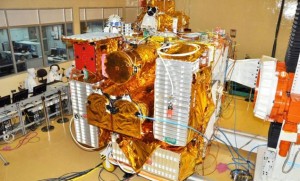ASTROSAT spots Crab Nebula, the brightest X-ray source
On October 9, ASTROSAT, the first Indian space observatory, spotted the Crab Nebula using the Cadmium Zinc Telluride Imager (CZTI) instrument. The Crab Nebula is the brightest hard X-ray (highest energy X-ray) source in the sky; researchers often use it as a reference to calibrate hard X-ray detectors.
The sighting of the Crab is significant and implies that the specific instrument on board can locate X-ray sources. It would further view other celestial X-ray sources and aid Indian research on them.
“This is only the beginning, with many more events to unfold”, ISRO said. The nebula was detected on October 9 [at the same time] by both the Mission Operation Centre at Peenya, Bengaluru, and the Payload Operation Centre, IUCAA, Pune.
ASTROSAT also spotted and viewed Cygnus X-1, a black hole source, for two days.
The sighting of the Crab Nebula was preceded by palpable tension and a “nerve wracking period which seemed like eternity but was only three days” before scientists at the Mission Operation Centre in Bengaluru detected the Crab Nebula at 2.03 pm on October 9. The Payload Operation Centre, IUCAA, Pune too detected it at almost the same time.
Soon thereafter, the ASTROSAT passed through the South Atlantic Anomaly (SAA) region when the Crab was in the field of view. The South Atlantic Anomaly is Earth’s magnetic field anomaly region as a lot of charged particles are trapped there. So there is so much noise whenever a satellite passes through the SAA region. The region can also damage the instruments. Hence all instruments were switched off when ASTROSAT was passing through the South Atlantic Anomaly region.
The multi-wavelength ASTROSAT was launched on September 28 with its five scientific instruments.
Other X-ray instruments would be made operational in the coming weeks. In about a month, all X-ray instruments will be ready to stare at interesting stars.
Kindly send reply or comments on this topic to [email protected]
Source:Thehindu




